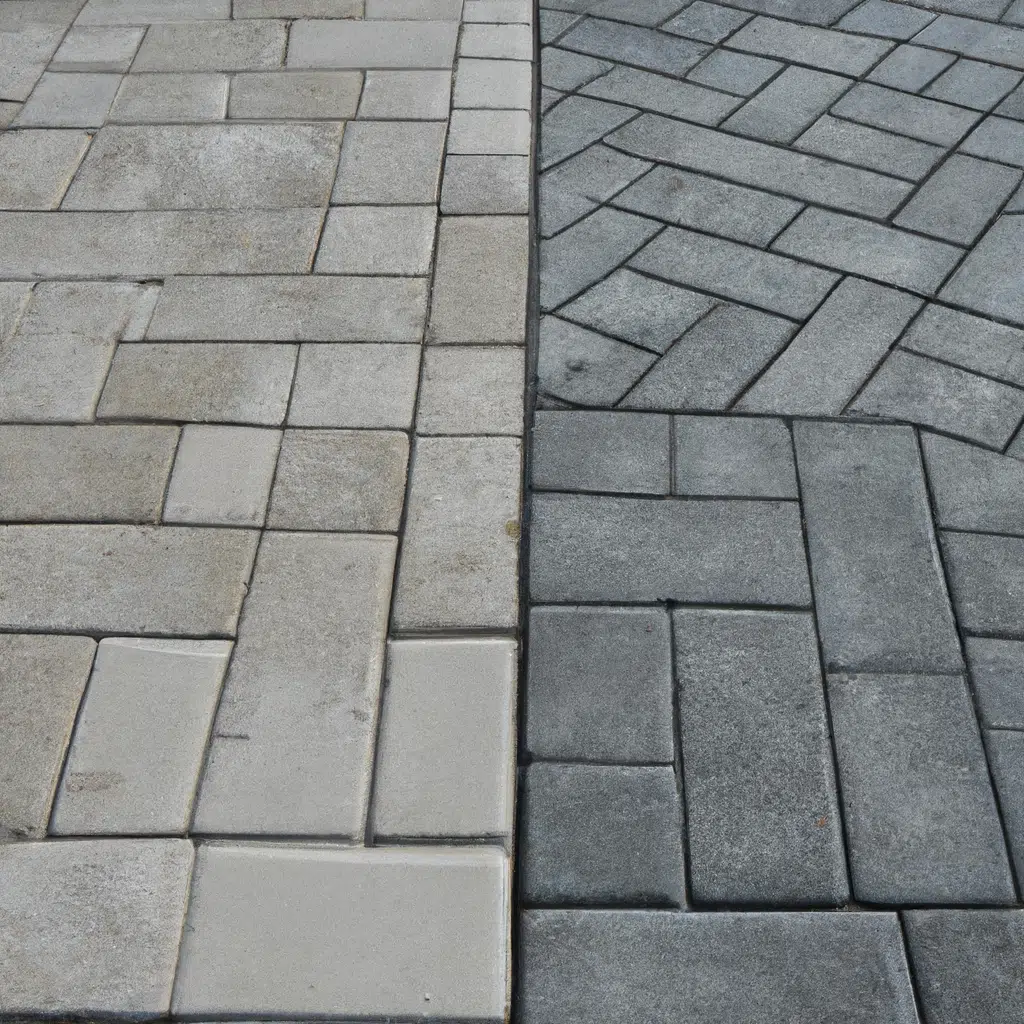
Introduction
When it comes to choosing the right material for your driveway, two popular options are pavers and stamped concrete. Both offer durability and aesthetic appeal, but which one is more cost-effective in the long run? In this article, we will explore the key factors that influence the cost-effectiveness of pavers and stamped concrete, allowing you to make an informed decision for your driveway project.
Cost Comparison
One of the first considerations when evaluating the cost-effectiveness of pavers and stamped concrete is the initial installation cost. Pavers are individual units that need to be laid down and secured, which can be a labor-intensive process. On the other hand, stamped concrete involves pouring concrete and applying a pattern or texture before it sets.
In terms of upfront costs, stamped concrete tends to be more affordable than pavers. The materials required for stamped concrete are generally less expensive, and the installation process is typically quicker. However, it’s important to note that the total cost will depend on various factors such as the size of the driveway, complexity of the design, and regional pricing differences.
Durability and Maintenance
While both pavers and stamped concrete can withstand the weight of vehicles and regular use, pavers are known for their exceptional durability. Pavers are individual units that can flex with the movement of the ground, reducing the likelihood of cracks. In the event that a paver becomes damaged, it can be easily replaced without affecting the rest of the driveway.
On the other hand, stamped concrete is prone to cracking over time, especially in areas with freeze-thaw cycles or unstable soil conditions. Although proper installation techniques and regular maintenance can minimize these risks, repairs can be costly and time-consuming. Additionally, the pattern or texture applied to the concrete may fade or wear off over the years, requiring reapplication to maintain its aesthetic appeal.
Aesthetic Options
When it comes to aesthetics, both pavers and stamped concrete offer a wide range of options to suit various design preferences. Pavers come in a multitude of shapes, sizes, colors, and patterns, allowing for endless customization possibilities. This versatility makes pavers an ideal choice for homeowners seeking a unique and personalized driveway.
Stamped concrete, on the other hand, can mimic the appearance of various materials such as brick, stone, or even wood. With the use of different patterns and colors, stamped concrete can achieve a similar aesthetic to pavers at a lower cost. However, it’s important to note that the visual appeal of stamped concrete may diminish over time due to wear and weathering.
Long-Term Value
When considering the cost-effectiveness of pavers and stamped concrete, it’s essential to take into account the long-term value they offer. Pavers have a longer lifespan compared to stamped concrete and can add value to your property. The durability and timeless appeal of pavers make them an attractive feature for potential buyers, which can potentially increase the resale value of your home.
Stamped concrete, although more affordable initially, may require repairs and maintenance over time. The cracks and fading patterns can detract from the overall curb appeal, which could potentially affect the market value of your property. If you plan on staying in your home for an extended period, investing in pavers might be a more cost-effective choice in the long run.
Environmental Considerations
In today’s environmentally conscious world, it’s important to consider the ecological impact of your driveway material choice. Pavers are typically more environmentally friendly compared to stamped concrete. Pavers are made from natural materials such as clay or concrete, which can be recycled or reused. Additionally, their permeable nature allows rainwater to seep through, reducing runoff and promoting groundwater recharge.
Stamped concrete, on the other hand, is primarily made of cement, which is known to have a significant carbon footprint. The production of cement involves high energy consumption and releases a substantial amount of greenhouse gases. While efforts have been made to develop more sustainable cement alternatives, it’s still a factor to consider when evaluating the environmental impact of your driveway choice.
Conclusion
In conclusion, both pavers and stamped concrete offer unique advantages and considerations when it comes to cost-effectiveness for your driveway. While stamped concrete may have a lower upfront cost, pavers tend to be more durable, customizable, and environmentally friendly. Considering the long-term value and potential resale value of your property, investing in pavers might be a wise choice.
Ultimately, the decision between pavers and stamped concrete will depend on your budget, design preferences, and long-term goals. It’s recommended to consult with a professional contractor who can assess your specific needs and provide expert guidance tailored to your unique situation. By carefully weighing the factors discussed in this article, you can make an informed decision and create a cost-effective and visually appealing driveway that stands the test of time.
